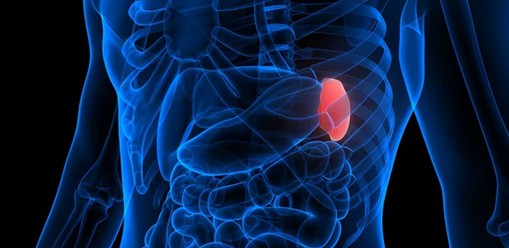By Sverker Porras, Pharm. D., and Lynn Lafferty, Pharm.D. ND, DACBN, MH
The spleen is an organ that is rarely talked about in American Medicine, yet it is a vital piece to Chinese medicine, and it is very important for the function of your immune system. The spleen is a fist sized organ that is on the left side of the abdomen under the ribs. One of the many functions of the spleen is to filter blood (red blood cells), breakdown and remove old/damaged red blood cells to essential components that the body can use. Along with the filtering of blood, the spleen produces enzymes that activate the immune system to take out microorganisms and antigens (foreign particles) from the blood stream. This is very important, because when microorganisms (even when dead) are not cleared, the immune system sees them as a foreign invader and keeps itself activated which can lead to chronic inflammation and autoimmune conditions. The spleen is part of the lymphatic system and does much of its work in the lymph to fight infections and diseases.
What is Hyposplenism?
Hyposplenism (Asplenia) is a reduced/absent function of the spleen and results in a large number of problems in the body’s biological processes. Hyposplenism is associated with inflammatory bowel disease, HIV, and chronic illness for people with organ transplants. It has been associated with several autoimmune diseases such as: Lupus, Hashimoto’s Autoimmune Thyroiditis, and Celiac disease. Autoimmune diseases are caused by lack/reduced functioning of the immune system. Many bacteria and viruses have been implicated in various autoimmune conditions as well.
The Thyroid-Spleen Link in Hashimoto’s Autoimmune Thyroiditis
Thyroiditis means inflammation of the thyroid gland. Hashimoto’s is the most common cause of hypothyroidism in the United States. Hashimoto’s Autoimmune Thyroiditis is an autoimmune disease in which your immune system attacks the thyroid. It has been linked to infections with different viruses and bacteria, such as: Hepatitis C, Epstein-Barr Virus, Human T-cell leukemia Type 1 (HTLV-1) and Yersinia enterocolitica. There is also strong evidence to show that parvovirus B19 is involved in the manifestation of Hashimoto’s Thyroiditis. The Thyroid releases hormones named T3 and T4, which help regulate body temperature, energy levels and body weight. When this does not work properly you can get symptoms such as being cold often, weight gain and fatigue. How does this tie into the spleen? Since the spleen helps with immunity and inflammation it can play a pivotal role in keeping organs healthy and keeping bacteria and virus cleared from the system. In Chinese medicine thyroid hormone balance is characterized as the relationship between the spleen and liver. The symptoms of spleen deficiency have many of the same symptoms as hypothyroidism.
What is Systemic Lupus Erythematosus?
Systemic Lupus Erythematosus (SLE) is an autoimmune disease in which the immune system attacks its own tissues and causes widespread inflammation and tissue damage to the affected organs lungs, kidney, brain, skin and joints . Although the origin of Lupus is a bit unclear, there are studies that show there is a link to viruses: such as retroviruses, Epstein-Barr virus, parvovirus B19, cytomegalovirus and HIV Type 1. https://pubmed.ncbi.nlm.nih.gov/31386190/.
It’s tie in with the spleen is quite evident through a myriad of studies that shows that SLE can cause splenic rupture (destruction of the spleen) as well as symptoms of splenomegaly (enlarged spleen) may also occur. There have been studies that have shown that SLE can cause calcifications in the spleen, which can further be diagnosed into connective tissue disease.
What is Celiac Disease?
Celiac disease is a serious autoimmune disease that affects an estimated 1 in 100 people worldwide. There are about 2.5 million Americans that are undiagnosed and are at risk for long term health complications. Those that are diagnosed with Celiac Disease are in need of a strict gluten-free diet. Gluten is found in wheat, barley, rye, oats and other types of grains. Celiac disease is caused by a reaction to gluten proteins (gliadins and glutenins). Celiac disease patients with gastrointestinal (GI) symptoms are known to have a different microbiota (bacteria that live in the GI tract) when compared with other patients. This suggests that there is a correlation between these microbiotas and the manifestation of Celiac disease.
Having a reduced function of the spleen plays a large role in celiac disease. Defective spleen function affects more than one-third of the adult population with celiac disease, and it predisposes them to a higher risk of infections. Hypersplenism in celiac disease can occur regardless of the disease stage, latent or symptomatic.
Conclusion
Ultimately, the spleen is a very important organ, and it tends to be overlooked. It is imperative for the public to be aware and take proper care of this essential organ, not only to prevent disease but to provide an overall better quality of life.
For spleen deficiencies, Chinese medicine has several treatments regarding the type of splenic ailments an oral concoction named Si Jun Zi Tang (“Four Gentleman’s Decoction”) comprised of Ginseng, Dang Shen, Astragalus, China Root, Bai Zhu and Chinese Licorice. This concoction helps nourish, restore and strengthen the spleens functions.
Desiccated spleen (spleen extract) is used in naturopathic medicine in the U.S. and is comprised of ovine spleen (sheep) and bovine spleen (cow) is also given as a replacement for a spleen that is not functioning properly or for those individuals that had the spleen removed (splenectomy). These bovine and ovine tissues provide nutrients, biochemicals and support.
So take care of your spleen to have a better quality of life!


Recent Comments